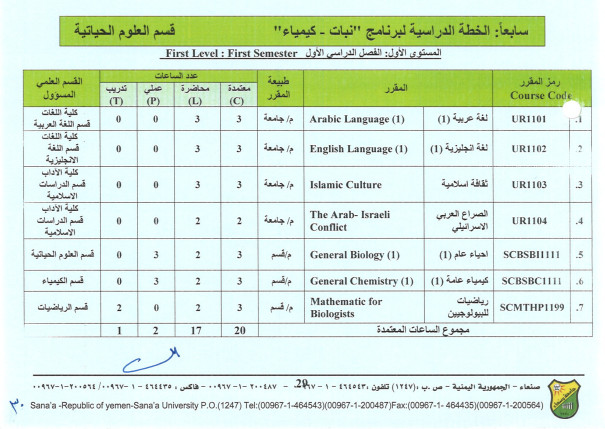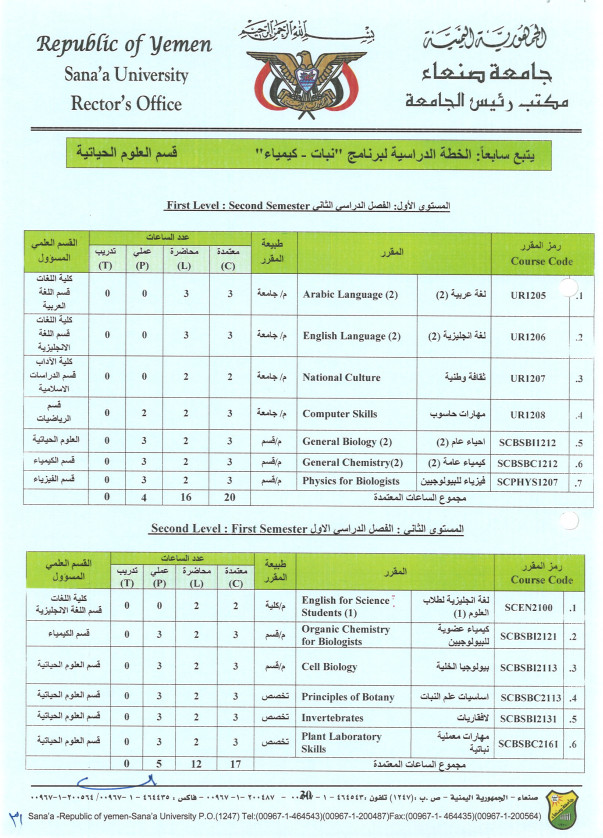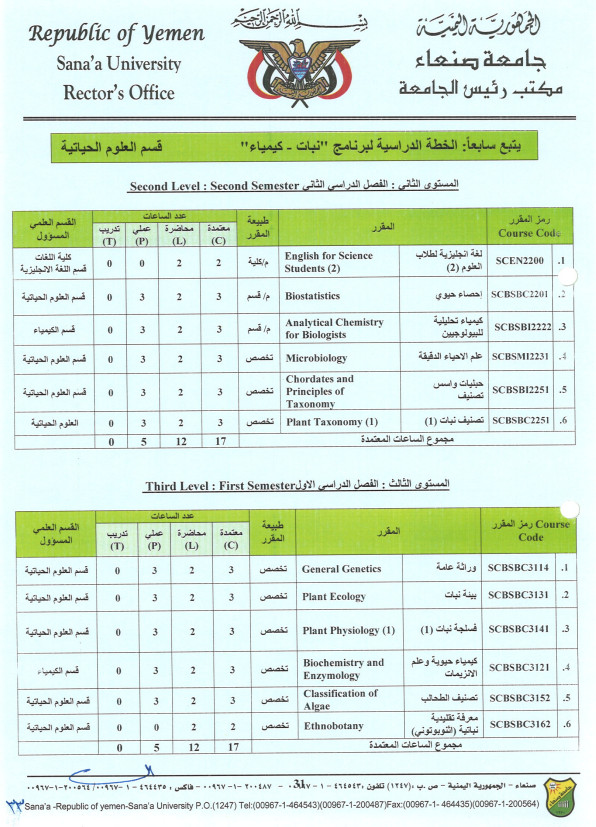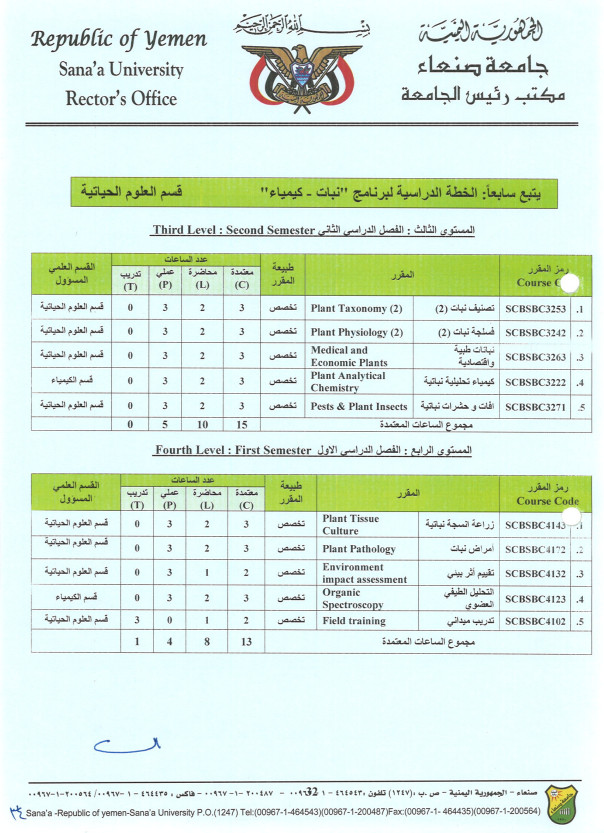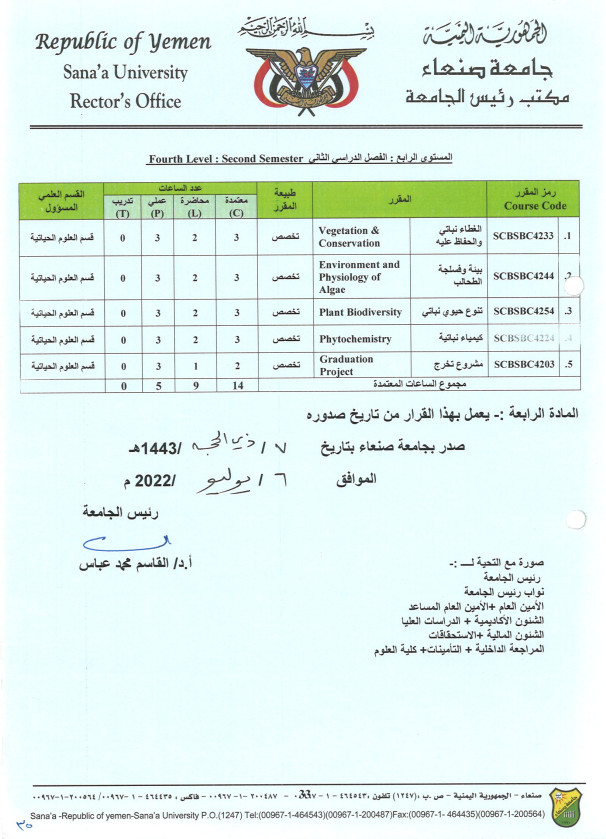Preparing specialized graduates in the fields of Botany through a suitable educational environment that earns the graduate knowledge and modern technologies to compete in the labor market
1. Providing the graduate with scientific and applied theories, principles and concepts in Plant Sciences to contribute to community development programs
2. Prepare a graduate who is able to use traditional and modern technologies related to the specialty and work in a team with high efficiency.
3. To provide the graduate with the skills of classifying plant and algal organisms to contribute to various programs to preserve plant biodiversity.
4. Prepare a graduate who is able to work efficiently in institutes, colleges, universities and research centers related to the specialty.
5. Enable the graduate to interact and communicate and raise awareness of the community on topics related to plants, its environment and its relationship with humans.
1. Providing the graduate with scientific and applied theories, principles and concepts in Plant Sciences to contribute to community development programs
2. Prepare a graduate who is able to use traditional and modern technologies related to the specialty and work in a team with high efficiency.
3. To provide the graduate with the skills of classifying plant and algal organisms to contribute to various programs to preserve plant biodiversity.
4. Prepare a graduate who is able to work efficiently in institutes, colleges, universities and research centers related to the specialty.
5. Enable the graduate to interact and communicate and raise awareness of the community on topics related to plants, its environment and its relationship with humans.
After successful completion of the program, the graduate will be able to:
Knowledge and understanding skills
A1: reviews the basic principles and concepts related to biology and related sciences.
A2: reviews the theories and concepts of plant and Chemical Biology competently.
A3: lists the main groups of living organisms, especially plants and their products and reviews their basic characteristics, which distinguish them from other organisms
A4: explains the basic biological processes in the plant kingdom efficiently.
A5 reviews the most important chemical compounds present in the individuals of the plant kingdom correctly
Mental skills
B1: explains the basic biological processes in plants and connects the basic concepts of Botany and plant chemistry.
B2: discusses the ecological interdependence of plant life on the Earth's surface.
B3: evaluates the results of laboratory and field experiments and compares them with the theoretically expected results.
B4: designs laboratory and field experiments related to Botany and proposes a laboratory method for identifying plant pathogens and methods of combating them.
Professional and laboratory skills
C1: conducts laboratory and field experiments for the propagation of plants (economic, rare, endangered)
C2: prepares and examines plant Cytological and anatomical preparations.
C3: classifies the plants of the Yemeni environment to the family level and attributes them to their higher taxonomic groups according to the basic morphological and anatomical qualities.
C4: classifies the Yemeni flora plants in terms of their medical and economic importance in different geographical areas.
C5: assesses the impact of various environmental pollutants on vegetation cover in the laboratory and field.
C6: carries out laboratory and field experiments related to Botany efficiently.
C7: statistics and mathematics are used in the analysis and interpretation of numerical results in laboratory and field experiments.
C8: extracts, separates and identifies phytochemical and algal compounds of high economic and medicinal value.
General or transitional skills
D1: proficient in laboratory and professional reporting skills.
D2: works flexibly within a team or as a team leader.
D3: self-learning through investigation and searching for the required information from databases using a computer or by effective communication.
